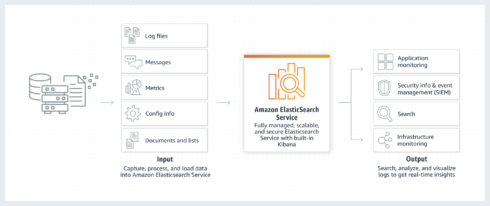
In response to Elastic changing its license for Elasticsearch and Kibana products, Amazon has responded with plans to create and maintain an Apache License, Version 2.0 fork of the open-source products.
Elastic announced earlier this week that it would be moving from the Apache 2.0 license to a dual license for Elasticsearch and Kibana, which includes the Elastic License and Server Side Public License (SSPL). “We think that Amazon’s behavior is inconsistent with the norms and values that are especially important in the open source ecosystem. Our hope is to take our presence in the market and use it to stand up to this now so others don’t face these same issues in the future,” Shay Banon, founder and CEO of Elastic, explained in a post.
Amazon now argues that doing this means Elasticsearch and Kibana will no longer be open sourced and that the Elastic License limits how the code can be used while the Server Side Public License makes it unacceptable to the open-source community.
“Elastic’s assertions that the SSPL is “free and open” are misleading and wrong. They’re trying to claim the benefits of open source, while chipping away at the very definition of open source itself. Their choice of SSPL belies this. SSPL is a non-open source license designed to look like an open source license, blurring the lines between the two,” the Amazon Elasticsearch team wrote in a blog post. “Most folks aren’t fooled. We didn’t make them do anything. They believe that restricting their license will lock others out of offering managed Elasticsearch services, which will let Elastic build a bigger business. Elastic has a right to change their license, but they should also step up and own their own decision.”
Banon argues that Amazon has caused confusion in the community when it decided to launch their service based on Elasticsearch and call it Amazon Elasticsearch Service. He also states that Amazon has misled the community by saying the service was developed in collaboration with Elastic when it wasn’t and used third-party code from Elastic’s commercial code as port of the Open Distro project. “We expect that a few of our competitors will attempt to spread all kinds of FUD around this change. Let me be clear to any naysayers. We believe deeply in the principles of free and open products, and of transparency with the community. Our track record speaks to this commitment, and we will continue to build upon it,” Banon explained.
Amazon’s forks of Elasticsearch and Kibana will be based on the latest ALv2-licensed codebases, version 7.10, and new GitHub repositories will be published over the next few weeks, Amazon explained. Amazon Elasticsearch Service will also be powered by the new forks and the company will provide new features, fixes and enhancements. The team explained the change should have no negative impacts on its current service. “This change will not slow the velocity of enhancements we offer to our customers. If anything, a community-owned Elasticsearch codebase presents new opportunities for us to move faster in improving stability, scalability, resiliency, and performance,” the team wrote. “We look forward to providing a truly open source option for Elasticsearch and Kibana using the ALv2 license, and building and supporting this future with the community.”






